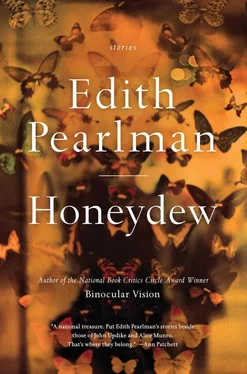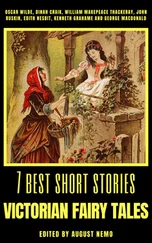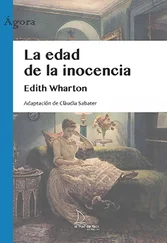But Daphna knew that Sunday was my busy day and that she was unlikely to find me at home. If I did happen to be in the house I might watch from between the slats of my upper-level bathroom as she made her rounds — loopy rounds, for she never rang the front doorbell, always the back. Barefoot, now holding her broom upright but upside down, she would disappear and reappear, cross and recross the street. The broom’s horizontal bar of whiskers was level with the top of her head. She looked like a peasant girl who had acquired a military suitor, or maybe a constabulary one.
Every Thursday afternoon I meet Rand in a coffee shop in Godolphin Center. I go home first to freshen up. One Thursday in October — it was Daphna’s second year in town, so I knew her schedule — I gave the street a once-over, then left my house on foot. Of course, to be safe, I walked on the side opposite Daphna’s house, and of course I walked fast.
“Shalom!” she screamed. She was standing on her top step, broom in hand. She must have been watching from a window, waiting to pop out. “Where are you going?”
“Coffee…with a good friend.” I didn’t break stride. “I’m late,” I said over my shoulder.
“The Marigold Café?” she yelled.
I nodded. My head was facing forward now, my right arm behind me like a wing. I wished it really were a wing.
“I’ll walk with you!” In a moment she was by my side. Her hand clutched the upended broom around its waist. Her unshod feet kept pace with mine.
“Daphna, don’t you teach on Thursdays?”
“It’s Sukkoth; no class.” Of course: in various Jewish backyards leafy structures had sprung up overnight. “You are enjoying that book under your arm? My oldest reads everything she can get her hands on. She reads upon rising, she reads when she goes to bed, she reads while she’s chopping onions, she reads in the shower…”
“A remarkable feat.”
“She accomplishes it. The teacher of my middle one tells me that she is the best science student he has ever encountered. She will become a physician, of that I am utterly sure. She will work on a Native American reservation with victims of fetal alcohol syndrome.”
“My husband was a drunk.”
“Ojibwa?”
“Episcopalian.”
We were passing a string of double-deckers. “These houses are advised to devote two-thirds of their land to grass, or something green,” she said. “But some are utterly blacktopped. Why? For the sake of the automobile.” Her family did not own a car; they used trolleys and an occasional taxi. They didn’t have a television either. “Did you see the sky at sunset yesterday? Royal purple, like the irises on Mount Gilboa. I stood in the attic of my home. There is a window facing west. The telephone rang several times, but I refused to abandon my post. Anyway, the calls are always for Avner or the girls. My oldest is sixteen. There are boys already in love with her. That is her destiny.”
We had reached Godolphin Center. The Marigold Café is a shallow place, mirrored to provide an illusion of depth. Rand was seated at a table in the back, against the mirror, his silver hair and distinguished shoulders doubled behind him. “Good-bye, Daphna.”
“They all want to pierce their ears. What do you think? Yes, mine also are pierced, but in my youth we stopped there. I am afraid that after the lobes the lips, after the lips the belly—”
“Good-bye, Daphna.”
She stood glaring at me, her feet bare on the pavement, the broom bristling beside her head. “When will you come to us for dinner?” She issued this question often.
“Soon,” I falsely promised, just as often. I turned in an abrupt manner, as if she had insulted me. It was the best method of breaking away. I entered the Marigold and leaned across Rand’s table to kiss his finely honed cheek. I sank onto the chair opposite him.
“Heavens,” he said, apparently noting my exhaustion. Then: “Heavens” again, looking past my ear. “Isn’t that your neighbor outside, getting in people’s way?”
I looked past his ear into the mirror. I saw, through the window of the café, that Daphna was still standing on the sidewalk and that passersby had to swerve to get around her. Some looked annoyed. Some stopped to talk. The human knot around her grew thicker, further irritating those wanting to keep going. Dear, aren’t you going to hurt your feet? that old lady must be saying. A good-looking broom, from a wag. Would you like me to take you to the shelter? Daphna turned her head from one to another. At last a policeman joined the little crowd and offered her his arm.
I later heard from Connie’s husband that he’d seen the two of them and the broom proceeding down our street, Daphna talking and the policeman listening; and that he, Connie’s husband, couldn’t tell whether his neighbor was under arrest or whether, at last, she was getting somebody’s full attention.
II.
The policeman’s name was Sam Flanagan.
He was tall and auburn-curled, snub-nosed and broad-grinned; and if I had ever brought him home my father would have thrown him out. Jews, Daddy could just tolerate; Irish, he despised. Sam had been born twenty-five years earlier on Magazine Street in the section of town we real estate people still call Whiskey Point. He was as thorough a Godolphinite as Daphna was a Jerusalemite, and he lived in his parents’ shabby house with eight of his nine brothers and sisters. The oldest, married to a man from Bhutan, had moved out.
“Can you imagine the chaos there?” Daphna said to me. “Siblings and their friends, assorted uncles and aunts, everyone drinking and watching television and utterly making a racket. They might as well be Arabs. What an atmosphere for a scholar.”
Well, Sam was a scholar, of sorts. He had graduated from the police academy and achieved a bachelor of science as well, and now he was studying law part-time. Our town pays for that sort of thing for its public employees, but of course it doesn’t provide a study house or even a carrel. “Within our family a person is able to reflect, to contemplate; and the girls have hundreds of those yellow highlighters.”
And so Sam on his red Vespa came to that dreadful house (“prewar spaciousness; new furnace”) almost every weekday, sometimes in the afternoon, sometimes in the evening. “Sometimes in the morning,” Lucienne reported, her cheeks as pink as that day’s scarf.
“Policemen have shifting shifts,” I told her.
“He takes one of the girls for a ride before school.”
I knew that. When Sam rounded the widower’s corner with a daughter riding pillion, I was reminded of my splendid horse, Patrick. He was a Hanoverian, seventeen hands. I had stabled him at Prides Crossing. During my teens I rode him three afternoons a week, taking the trolley from South Godolphin to North Station, then the train to Patrick. And so I was reminded too of my parents, bravely maintaining that South Godolphin mansion (“Italianate villa on two acres; swimming pool and carriage house”) — reminded of Daddy’s bankruptcy and the taking over of his company by two well-dressed Italians. “Goddamn foreigners.” And reminded of my misguided marriage, entered into in the wake of Daddy’s ill fortune. All those memories, occasioned by a young man and a girl on a motor scooter. Lucienne in her soft chiffon and tippling Sylvia and Connie the determined empath probably had youthful things to be reminded of too. I don’t know what those things were because around here we don’t discuss regrets or triumphs. And I certainly don’t know what Avner thought on a particular morning when he descended his front steps just as Sam rode up, Daphna behind him, her arms around his leather jacket, hair streaming. I know only that he waved at them.
Читать дальше












